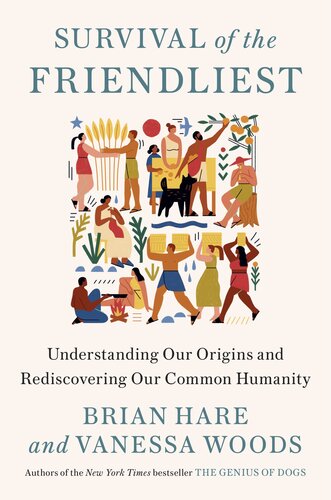

Most ebook files are in PDF format, so you can easily read them using various software such as Foxit Reader or directly on the Google Chrome browser.
Some ebook files are released by publishers in other formats such as .awz, .mobi, .epub, .fb2, etc. You may need to install specific software to read these formats on mobile/PC, such as Calibre.
Please read the tutorial at this link: https://ebookbell.com/faq
We offer FREE conversion to the popular formats you request; however, this may take some time. Therefore, right after payment, please email us, and we will try to provide the service as quickly as possible.
For some exceptional file formats or broken links (if any), please refrain from opening any disputes. Instead, email us first, and we will try to assist within a maximum of 6 hours.
EbookBell Team

0.0
0 reviewsIn delightfully conversational prose and based on years of his own original research, Brian Hare, professor in the department of evolutionary anthropology and the Center for Cognitive Neuroscience at Duke University, and his wife Vanessa Woods, a research scientist and award-winning journalist, offer a powerful, elegant new theory called "self-domestication" which suggests that we have succeeded not because we were the smartest or strongest but because we are the friendliest. This explanation flies in the face of conventional wisdom. Since Charles Darwin wrote about "evolutionary fitness," scientists have confused fitness with strength, tactical brilliance, and aggression. But what helped us innovate where other primates did not is our knack for coordinating with and listening to others. We can find common cause and identity with both neighbors and strangers if we see them as "one of us." This ability makes us geniuses at cooperation and innovation and is responsible for all the glories of culture and technology in human history. But this gift for friendliness comes at cost. If we perceive that someone is not "one of us," we are capable of unplugging them from our mental network. Where there would have been empathy and compassion, there is nothing, making us both the most tolerant and the most merciless species on the planet. To counteract the rise of tribalism in all aspects of modern life, Hare and Woods argue, we need to expand our empathy and friendliness to include people who aren't obviously like ourselves.